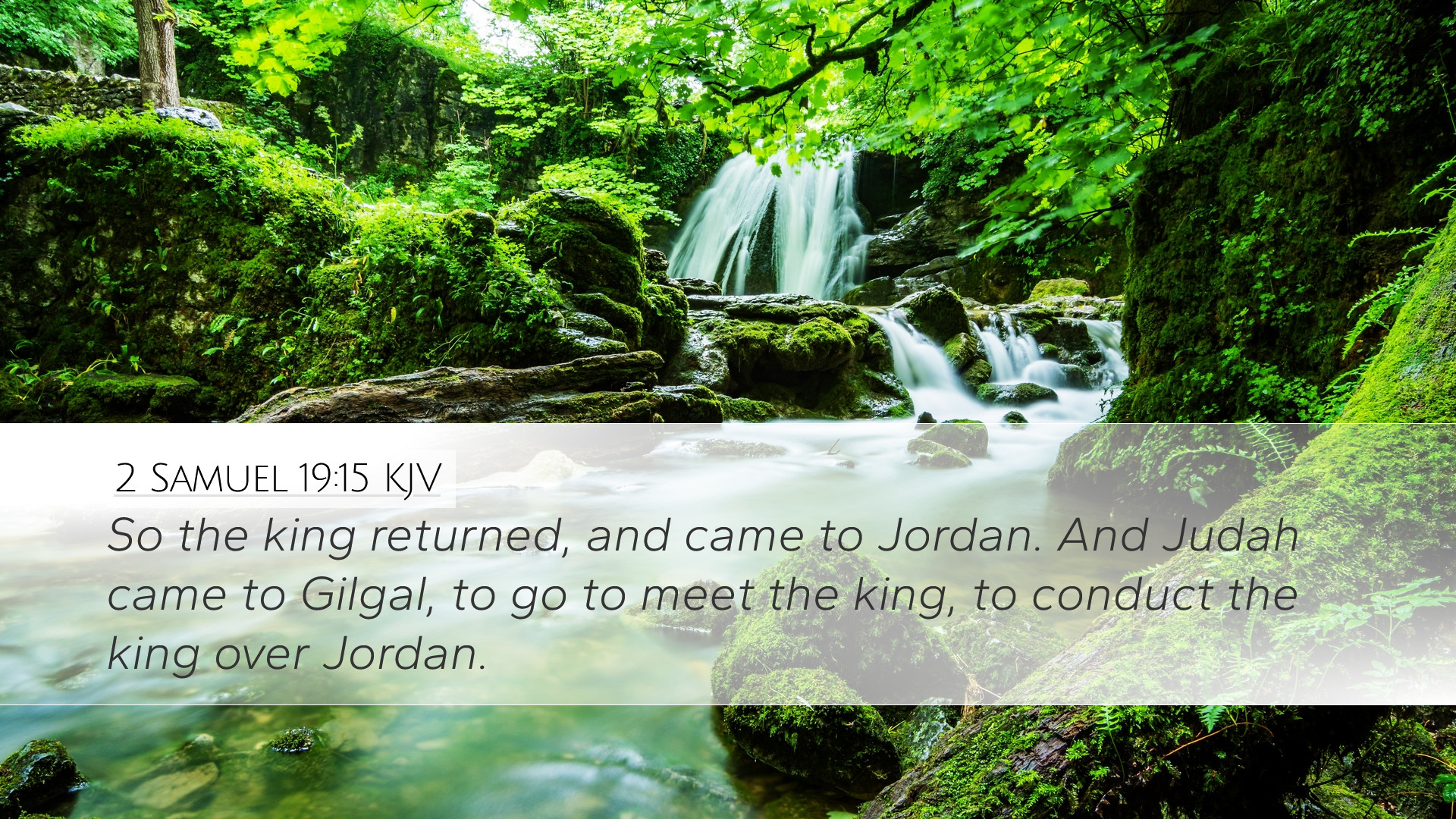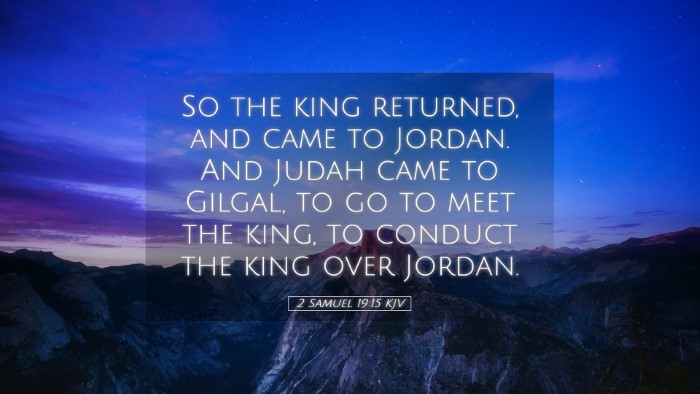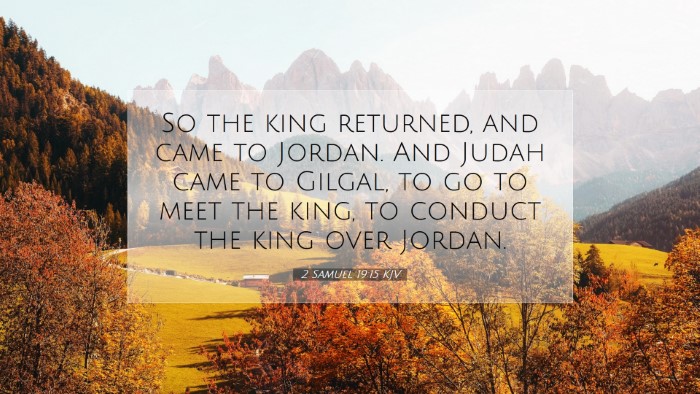Commentary on 2 Samuel 19:15
Verse: 2 Samuel 19:15 - "So the king returned and came to the Jordan. And Judah came to Gilgal to meet the king and to bring the king over the Jordan."
Introduction
This pivotal verse occurs after Absalom’s rebellion and subsequent death. King David, having been in exile, is returning to reclaim his throne. This moment marks not only his physical return but also symbolizes the restoration of order and the reestablishment of David’s reign over Israel.
Context and Setting
After a period of turmoil and suffering due to familial strife and rebellion, David’s return signifies a new chapter for Israel. This passage highlights the dynamics of leadership, loyalty, and the collective grief that Israel experienced. Scholars such as Matthew Henry emphasize the importance of kingly authority and the emotional response of the people to David’s return.
Insights from Commentators
Matthew Henry
Matthew Henry observes that David’s return to the Jordan is not merely a geographical movement but a vital moment where the people’s allegiance to their king is reaffirmed. He remarks on the gathering of Judah at Gilgal, highlighting the symbolism of this location as a point of unity and restoration. Henry notes the significance of Gilgal as a place of covenant renewal, suggesting that David’s return serves as a restoration of covenant fidelity.
Albert Barnes
Albert Barnes focuses on the implications of the characters involved in this verse, particularly the men of Judah. He explains that their decision to meet David indicates a desire for reconciliation and unity within the kingdom. Barnes articulates the notion that in the wake of Absalom’s rebellion, the loyalty of Judah serves as a beacon of hope for a kingdom fragmented by conflict.
Adam Clarke
Adam Clarke remarks on the emotional tone of this verse. He suggests that the return of the king brings with it a blend of joy and solemnity, as well as a renewed commitment to leadership for David. Clarke emphasizes the importance of community in this event, as the people of Judah actively participate in the restoration of their king, illustrating the necessity of communal recognition of authority.
Theological Reflections
This verse provides rich theological insights into leadership and the nature of divine restoration. As David returns, it serves as a reminder of God’s faithfulness despite human failures. The journey across the Jordan symbolizes the crossing from discord to unity, reflecting God’s ongoing covenant relationship with His people.
Practical Applications
- Leadership and Restoration: The narrative invites us to reflect on how leaders can restore hope and unity within their communities after periods of crisis.
- Community and Allegiance: The communal aspect of meeting David illustrates the importance of collective allegiance and the role of communities in times of transition.
- Covenant Renewal: The return symbolizes an opportunity for spiritual renewal and recommitment to God’s purposes.
Conclusion
2 Samuel 19:15 encapsulates a profound moment of restoration for King David and the people of Israel. This verse serves as a reminder to leaders and communities alike of the potential for renewal and reconciliation. The insights from respected commentators enrich our understanding, enabling us to grasp the complex emotions of the time and their implications for our faith today.


